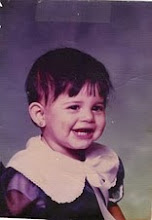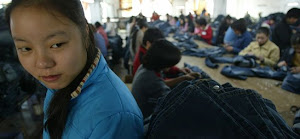Author Elena Poniatowska described the legendary women of Juchitán, a city in Oaxaca, Mexico, as “guardians of men, distributors of food.” Artists like Miguel Covarrubias and Frida Kahlo celebrated their beauty and intelligence. Blossoms of Fire shows them in all their brightly colored, opinionated glory as they run their own businesses, embroider their signature fiery blossoms on clothing and comment with angry humor on articles in the foreign press that flippantly and inaccurately depict them as a promiscuous matriarchy. The people interviewed in this film share a strong work ethic and fierce independent streak rooted in Zapotec culture. http://www.maureengosling.com/ramo/about/about.html
It is true that this film has its flaws, the story is often too surface, failing to delve deeply into any one persons life to much preferring instead to include interviews by a larger diverse group. This is both a positive and a negative. There are moments in the film when a interviewee is abandoned just when it seems that a deeper revelation was near. On the other hand we not only hear from the Zapotec market women, we hear from midwives, husbands, children, anthropologists and are even introduced to writing of the Zapotec women written by artists, historians, explorers, and musicians. In the town of Juchitan in Mexico men and women have been regarded as equals since preColombus. The films begins with a scandal, Spanish Elle had recently published a story of the Zapotec women painting them as living in a Matriarchal utopia that oppressed men, the women were said to take their husbands money and leave them to babysit while they drank and had sex all night. While it is true that eh Zapotec society can seem matriarchal, it is far from what was described above. It is true that the women are the financial keepers, both men and women agree that the women are better at thinking of the future, saving for a rainy day. Also the misconception that the men did not work was also clarified, the men do work and quite hard, they usually work in farms or as fisherman and in town. I believe the misconceptions spring mostly from the fact that in this culture the women and men, in most cases seem to stand side by side. Women run many of the businesses, are highly independent, and are deeply involved in the politics of the region. The women work hard and play hard, but so do the men. One quotes stands out a women described their culture as not seeking riches, just enough for the essentials, food, education, and fiestas. She quickly though explains that the fiestas are not for the purpose of partying, they are used as a way to continually promote a unity between the people with fiestas often being 'sponsored' a a few people in the town and others chipping in, with food, drink, decor, etc. These celebrations are about celebrating the fact that the town stands together.
It is funny to think about how a town in which equality and support among the sexes is the norm that the outside world would see it as a matriarchal town run by loose, evil women. Why can the world just accept a culture in which women are celebrated for their contributions and respected as an integral part in the family unit, not just a a breeder and nurturer, but also as a provider? Not just that there is a strong sense of collaboration with these women, the days after the Elle magazine came out a group of the Zapotec women went to a man selling the magazine and forced him to stop selling the magazine. While this act can be seen as legitimizing the quotes in the magazine, we hear from the women involved that the protest was not just for the sake of the women but for the entire village, they did not want the world to think that the men in the village were less than.
Another portion of the film explores the towns almost unanimous acceptance of the homosexual and transgendered community. While I appreciated this information, I felt that that aspect could have been a film unto itself. Both gay males and females discuss their various experiences, some did experience some disappointment from family members but that in almost all the cases went away with time. In fact one gay man describes a saying that Zapotec women having, they express that they want at least one gay or muxe (transgenders, or drag queens, men with female qualities) son because often that is the child that stays home and/or provides for the mother until she dies. There are interludes in which colonialism and the effects of globalization on indigenous cultures are discussed. Juchitan and the Zapotecs have long been anti-Mexican government and both men and women have physically fought against it. The effects of globalization are briefly acknowledges both with visuals and interviews however the Zapotec women assert that the traditions of their culture will not be lost. In fact we see the women actively continuing to teach the indigenous language of the Zapotecs.
The faults in this film from a TF perspective lie in the insistence of gender and cultural essentialism. Where is this not the case is the acceptance of the transgendered community (for the most part). Just because the women in this town enjoy a culture that promotes their status within the community does not mean that they do not choose to live their live by very rigid rules of what is expected of them.
As a whole the film is good, I could have done without the voice over narration by the director however the inclusion in indigenous music as the soundtrack to the film was absolutely the right decision. The reading of quotes describing the Zapotec people was also a good choice providing the audience with a historical framework.
Subscribe to:
Post Comments (Atom)







No comments:
Post a Comment